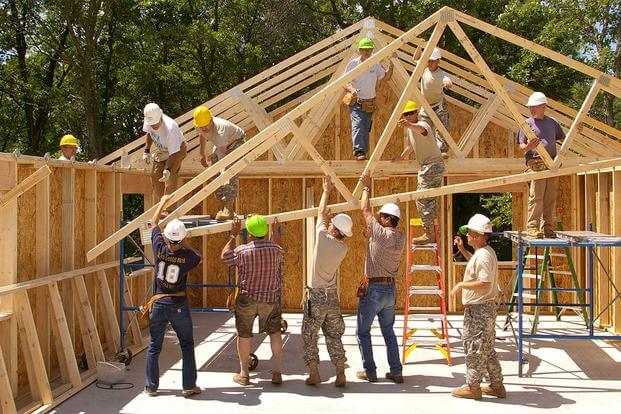
In 2025, the homebuilding and real estate sectors face a dynamic labor market, shaped by technological innovation, shifting workforce demographics, and changing candidate expectations. To stay competitive, companies in construction, land development, architectural design, and property management must adapt their hiring strategies to align with evolving trends.
Here are the most critical recruitment developments affecting the industry this year:
- AI-Powered Hiring: Enhancing Speed and Fit
AI is reshaping recruitment across all industries by automating resume screening, predicting candidate success, and improving workforce diversity. From hiring project managers to division presidents, AI tools help identify top talent faster and with more precision.
Industry Application:
- Use AI to efficiently screen high volumes of candidates for seasonal or project-based roles.
- Deploy predictive analytics to assess the long-term fit of sales agents, site supervisors, or customer service reps.
- Choose platforms that integrate with your existing HR systems for seamless implementation.
- Skills-Based Hiring: Filling Roles with the Right Competencies
With construction labor shortages and evolving sales models, credentials are becoming less important than practical ability. Whether hiring for skilled trades, digital marketers, or sales agents, companies are emphasizing hands-on experience and demonstrable skills.
Industry Application:
- Prioritize field-tested skills over certifications when hiring superintendents, estimators, or land professionals.
- Use skills assessments or trial projects to evaluate marketing and design hires.
- Collaborate with local training programs and trade schools to build a talent pipeline for entry level needs.
- Remote Work: Still a Factor in Office Roles
While on-site work remains essential for many roles in homebuilding, remote work flexibility is increasingly expected for administrative, marketing, finance, and support functions. Hybrid models can help attract experienced professionals in a competitive talent market.
Industry Application:
- Offer flexible or remote options for design teams, coordinators, and back office roles.
- Maintain clear expectations for hybrid work to ensure team alignment and productivity.
- Use remote collaboration tools to bridge jobsite and office communication.
- Candidate Experience: Essential in a Reputation-Driven Industry
In real estate and construction, word-of-mouth matters—especially in local markets. A poor candidate experience can hurt your reputation not just with job seekers, but also with clients and partners.
Industry Application:
- Streamline hiring for both field and office roles to reduce delays.
- Provide consistent communication and respectful feedback to every candidate, even those not selected.
- Train hiring managers and site supervisors to represent the brand during interviews.
- Competitive Compensation: Broaden the Value Proposition
In 2025, offering competitive compensation is more than a matter of salary—it’s about providing a total rewards package that motivates and retains top talent. This is especially important in the real estate and homebuilding sectors, where skilled labor is in short supply and high-performing roles (like sales agents or project managers) directly impact the bottom line.
Performance-based bonuses are also critical across the industry, from sales incentives for sales agents to project completion bonuses for construction leaders, as well as bonuses for land, purchasing and customer service professionals. When structured well, they not only drive results but also improve employee engagement and retention.
Industry Application:
- Benchmark pay and bonus structures for key roles—such as construction managers, leasing agents, and warranty reps—against local competitors.
- Introduce tiered performance bonuses tied to project delivery, customer satisfaction, or sales targets.
- Highlight additional benefits—like healthcare, development stipends, and flexible scheduling—as part of the overall offer.
- Communicate clearly how compensation evolves with performance and tenure, reinforcing career growth opportunities.
- Developing Internal Talent: Build, Don’t Just Buy
Filling leadership and specialized roles internally is more efficient and sustainable. With the industry’s aging workforce, succession planning and internal development are critical to long-term success.
Industry Application:
- Identify rising stars in field teams and support their advancement into supervisor and PM roles.
- Offer licensing, certification, or tuition reimbursement to administrative staff interested in moving into project management, sales, or HR.
- Encourage cross-training across departments (e.g., construction team members gaining sales knowledge).
Conclusion: Adaptability Is the New Advantage
Recruiting in the homebuilding and real estate industries demands a thoughtful, industry-specific approach. By embracing technology, centering skills over credentials, offering flexibility where possible, and investing in people, companies can secure the talent they need—now and for the future.
In an industry built on growth, the key to building better businesses starts with hiring smarter.